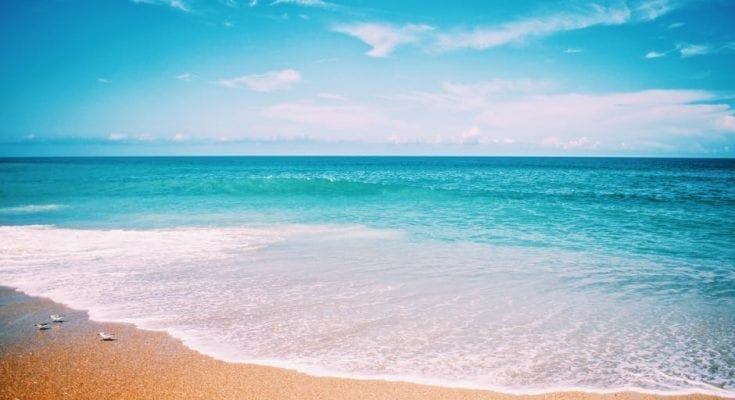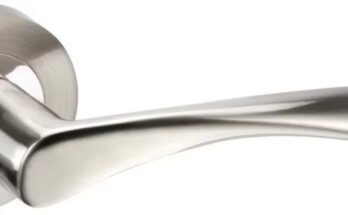On the surface, the world’s oceans may seem similar and defined only by their location. Yet, each of Earth’s five oceans has its own distinguishing characteristics.
The Atlantic Ocean is loosely defined as the body of water that separates Africa and Europe from the Americas. It is itself divided into two halves, namely, the North Atlantic and South Atlantic.
The North Atlantic is the warmest and saltiest ocean on the planet, while the South Atlantic is the coldest and least salty of the oceans.
That’s not the only unique trait of this huge body of water, here are some more facts about the Atlantic ocean.
1. It’s Almost 3 Million Years Old
While some scientists, date the formation of the Atlantic at up to 23 million years ago, recent research proves otherwise.
The main division between the Atlantic Ocean and the Pacific Ocean is undoubtedly the isthmus of Panama. Studies suggest that Panama began to rise from the sea approximately 73 million years ago.
The transformation ended around 2.8 million years ago, creating the Atlantic Ocean.
2. It Takes up 20 Percent of the Earth’s Surface
The Pacific might be the largest of our oceans, but the Atlantic is no slouch when it comes to size either. This huge mass of water spans 32,870,035 square miles.
That makes it just over half the size of the Pacific.
3. Depth and Width
The deepest part of the ocean is at the Puerto Rico trench where it reaches down for almost 5 miles.
Between Mexico and Spain, the Atlantic stretches for about 5,500 miles.
4. Its Name is Rather Unoriginal
It was the Ancient Greeks who first gave this body of water its name. It stems from the word, ‘Atlantikos’ which means simply ‘large water area’.
While this term is singularly unromantic, the Greeks also associated the Atlantic with a few interesting myths. The best-known of these is the tale of Atlantis.
5. It’s the Home of Myth and Legend
This tale of an underwater city was first penned by the philosopher Plato in 450BC. His story tells of a large, advanced civilization, ruled by the God Atlas, that inexplicably sank beneath the waters overnight.
While many an explorer has searched for evidence of this lost civilization, they’ve never found a single trace of it. Mathematicians argue that it’s impossible for a continent to sink into the ocean since it’s less dense than the waters surrounding it.
6. There are Things Hidden Beneath its Waters
The idea of a submerged continent may be a little far-fetched, but the Atlantic does have an entire mountain range buried beneath its turbulent surface.
The Mid Atlantic Range stretches from Iceland past the southern tip of Africa.
It’s almost entirely underwater, with a few peaks like the Azores, Ascension Island and Iceland jutting out of the ocean’s surface.
There are also diamonds hidden on the floor of the ocean. During 2017, De Beers retrieved 1.378 million carats worth of diamonds from the bottom of the ocean off the shores of Namibia.
7. Big Data About the Atlantic Ocean
The Atlantic may play second fiddle to the Pacific when it comes to size, but it leads the way in other areas.
More rivers empty into the Atlantic than any other ocean. We’re talking giant watercourses like the Amazon, Mississippi, Congo, Loire, Niger, and Rhine rivers.
It also has the highest tides on Earth. At the Bay of Fundi in Canada, high tide means the waters rise by over 50 feet twice day, revealing huge tracts of the ocean floor in between these surges.
Of all the world’s 155 nations, 133 countries border the Atlantic at some point. Asia and Australia are the only two continents that do not have Atlantic waters washing their shores.
8. It’s Central to World Trade
Since you can reach so many destinations by means of the Atlantic, it’s central to oceangoing trade.
The ocean also harbors rich deposits of oil and gas. Reports suggest that the shores of the USA alone could still yield another 1.3 million barrels of oil per day.
9. It’s a Hazardous Place for Ships
While this waterbody may be the place that launched a thousand ships, it’s not the safest place for vessels.
The Atlantic is notorious for its violent storms and many a maritime explorer has met their end at sea here. The Cape of Storms and Namibia’s Skeleton Coast are home to numerous wrecks that testify to this.
Apart from violent weather, the Atlantic boasts no shortage of icebergs either. The Titanic sank into the Atlantic Ocean 400 miles off the coast of Newfoundland after colliding with one of these giants.
Another anomaly of the Atlantic is the Bermuda Triangle, where some ships have disappeared without a trace.
While experts dispute the existence of this wormhole, there’s no denying that ships and airplanes have disappeared without a trace in this area.
10. It’s Also an Awesome Playground
Despite its bad reputation, the Atlantic still draws the crowds. It’s a great place for boating and water sports. The fishing is excellent and anglers relish the chance to land a blue marlin, dorado, sailfish, or roosterfish.
As a result, you’ll find plenty of luxury holiday resorts as well as family destinations lining its shores like Osprey Point, Seacoast Suites, and Crosswinds.
11. Other Facts About the Atlantic Ocean
Other lesser-known snippets of information centered on the Atlantic include these facts:
- It’s home to some of the world’s biggest islands like Great Britain, Ireland, Cuba, and Newfoundland.
- Fishermen caught a live coelacanth in the Atlantic Ocean during 1938.
- It’s one of the best places for whale-watching in the world.
- It was the first ocean traversed by both an airplane and a ship.
There’s a lot to appreciate about the Atlantic Ocean, beyond gorgeous beaches and fun activities.
Get the Facts
Armed with these facts about the Atlantic ocean, you’re ready to tackle any trivia challenge or make small talk around the dinner table.
Keep reading out our blog for more amazing facts about almost everything on Earth.



